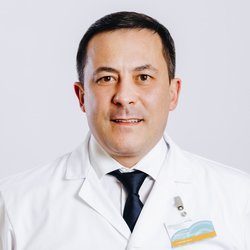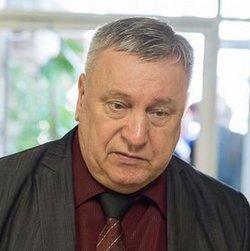Cancer 'in the mask': how pandemic affects lives of cancer patients in Tatarstan
Is there going to be a surge in cancer deaths in Tatarstan and who will get a CT scan for free?
Russian oncologists announced an upcoming increase in the death rate of Russians from cancer in May. The forecast was based on the fact that, in their opinion, during the pandemic, care for cancer patients was not provided in full, and a number of specialised medical institutions were converted into 'Covid' hospitals. Besides, due to the suspension of admission of planned patients, the detection of cancer in the early stages has also significantly decreased — such conclusions were made after a survey of doctors by the analytical company RNC Pharma and the social network Doctor At Work. Realnoe Vremya found out how the Republican Clinical Oncological Centre in Tatarstan is working now, whether there are problems in the region with providing care to cancer patients and whether to expect an increase in deaths from cancer in 2020.
There is dynamics but in the other direction
The ministry of healthcare of Russia reacted to the data published by RNC Pharma quite definitely. The press service of the department issued a statement by the head of the N.N. Blokhin National Medical Research Centre, chief freelance oncologist of the ministry of healthcare, Ivan Stilidi. The doctor stressed that despite the coronavirus pandemic, there should not be more people with cancer in Russia, since patients with cancer receive all the necessary medical care.
Moreover, just a day before the publication of the alarming forecast, the ministry of healthcare reported that Russians are less likely to die from cancer — the death rate from neoplasms in January, February and March 2020 decreased by 3,9% compared to the same period in 2019 and amounted to 199 cases per 100,000 of the population.
The work of oncologists has not stopped
We asked Chief Physician of the Republican Clinical Oncologic Dispensary of the Republic of Tatarstan Ilgiz Khidiyatov to tell us about the situation in Tatarstan.
Ilgiz Rinatovich, how has the quarantine affected the work of the hospital?

All manipulations and meals are carried out exclusively in the wards, so patients' contacts with each other have been minimised, and social distance is observed. Antiseptics are installed along the path of patients' movement, and antibacterial detergents are used in all available places. Hospitalisation is performed with a negative epidemiological history, with information recorded in the patient's medical record.
In what conditions do doctors and medical staff have to work?
The staff in the clinic is working in special clothing, masks, gloves, with the use of frontal protective shields. If there are signs of SARS, employees are suspended from work. The first thing that is done when they come to work is to measure the temperature, it is also measured twice during the day, everything is recorded in the book of records. Add here three times disinfection of floors, all surfaces from door handles to switches and round-the-clock air disinfection.
Tomography is mandatory. But it's free
Have the requirements for planned hospitalisation changed?
In order to prevent carrying COVID-19 into the walls of the cancer centre, we have started to conduct computer tomography of the chest organs in all patients before planned hospitalisation for inpatient treatment. This expensive diagnostics is being done today for free. This is the most accurate and informative method of diagnosing viral pneumonia. It's important — the room for computer tomography is located in the building of the clinic, equipped with a separate entrance. Patients in inpatient departments are sent to hospital on schedule. In addition, on the eve of hospitalisation, the call center of the republican hospital notifies patients about the specific time of the visit and the need to appear for the appointment at the specified time.
Are there any restrictions on visiting patients by relatives because cancer patients in a serious condition or after surgery often need constant care?
Yes, the ban has been set. The number of carers and attendants is limited to no more than one person if necessary. The flows of patients in the hospital and polyclinic do not intersect.
For the convenience of patients and accompanying persons, passes have been developed for easy access to and from the dispensary
Cancer patients are allowed to enter even in the “closed” city
Is it true that not all patients of the republic could receive timely assistance, for example, in the days when entry to the city was prohibited, and outpatient patients did not have referrals?
According to the decree of the Cabinet of Ministers of Tatarstan dated March 31, movement to the place of medical care in Oncology was allowed even during the period of restrictive measures. For the convenience of patients and accompanying persons, passes have been developed for easy access to and from the dispensary. Such certificates of the standard form were issued by the oncologist of primary oncological office.
As for information about the suspension of measures to detect cancer at an early stage, I can say with good reason that this is not the case. Together with the primary network, work was carried out on further examination of patients with abnormalities (laboratory tests, PSA test, mammography, cervical сytology screening) identified as part of oncoscreening during medical examination. Also, during the pandemic, the number of chest CT scans has increased significantly throughout the country, which has led to the detection of more than 150 cases of suspected lung neoplasms.
We have organized monitoring of such persons, their further examination and, if necessary, routing to specialised treatment. In short, my colleagues and I are not aware of cases of delayed provision of specialised cancer care, including due to restrictive measures during the pandemic. The waiting period for hospitalisation, depending on the department, ranges from a few hours to 11 days. The number of complaints from patients about the quality of medical care decreased and for 5 months of 2020 amounted to five (for reference, for the same period of 2019 — eight).
A nurse became a donor for patients with COVID-19
Are there any cases of coronavirus among patients and staff?
Unfortunately, over the time of the pandemic, 18 cases of suspected disease have been detected in patients undergoing inpatient treatment in our hospital. The case of COVID-19 has been confirmed in one patient. Eleven employees got sick with the new coronavirus, all cases of infection are associated with contacts with COVID-19 patients outside the walls of the medical organization, that is, they occurred during domestic contact. Particularly noteworthy is the case of coronavirus in a nurse who, after suffering the disease, became a donor for the treatment of patients with COVID-19.
Do you, like some Russian doctors, also expect an increase in the death rate of cancer patients in Tatarstan?
According to Tatarstan statistics, in January-April 2020, the number of deaths from neoplasms was 2,409 people, which is by 40 people less than in the same period of 2019. In terms of 100 thousand population, the population's mortality from neoplasms in January-April 2020 was 186,7 cases per 100 thousand population, which is by 2,3% less than in the same period of 2019 — 191,1 per 100 thousand population. Thus, we do not forecast an increase in the population's death rate from cancer in 2020.
Stop spitting in the well!
We also asked the deputy head of the press service of the ministry of internal affairs of Tatarstan, Maksim Kostromin, about whether patients from the regions of Tatarstan could not get to oncostation centres in Kazan because they were simply not allowed to enter the city at traffic police posts during isolation. He stated that such facts were unknown to him. No such statistics have been kept, but no complaints have been received from cancer patients or their representatives.
Vladimir Vavilov, the chairman of the board of the Angela Vavilova Regional Public Charity Fund for Children with Leukemia of the Republic of Tatarstan, also commented on the current situation and the appearance of information about the upcoming jump in mortality among cancer patients:

Indeed, there were cases when planned patients did not get into the hospice. There was a case of this with a stage 1-2 cancer patient. But he himself refused to go for fear of contracting coronavirus! Indeed, some specialised hospitals that were converted into hospitals for patients with coronavirus were not accepting planned patients. However, their functions have been taken over by other medical institutions. Yes, it is very difficult for all of us today, but this is life. So let's not spread rumours, blame someone. Let's not spit in the well.”